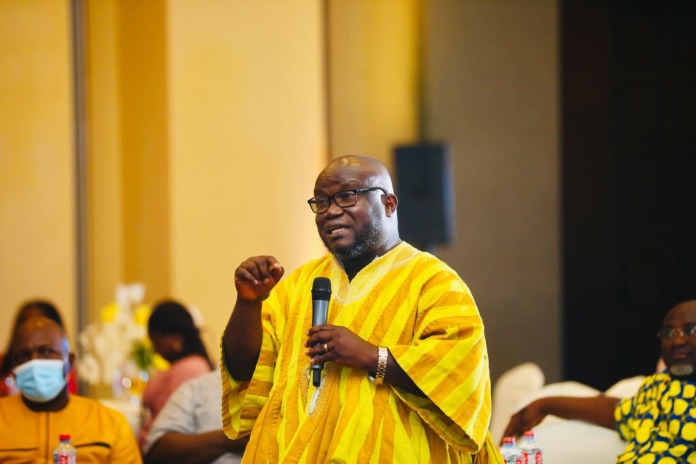The Ghana Chamber of Mines has strongly objected to proposed amendments to the Minerals and Mining Act that would reduce the duration of mining leases from 30 years to 15 years.
According to the Chamber, the move risks undermining Ghana’s competitiveness and discouraging both local and foreign investment in the sector.
Presenting the Chamber’s position paper at a press briefing, Chief Executive Officer, Ing. Dr. Ken Ashigbey, argued that a shorter lease period would make projects less viable and deter capital inflows.
“What is going to happen is that if the tenure is short, when you do your NPVs, you will find out that the project is not feasible. And if it is not feasible, nobody will bring money to invest. Not only foreign direct investment, but also local direct investment,” he explained.
Dr. Ashigbey also cautioned that a shorter lease period could incentivize unsustainable practices such as high grading, where companies exploit only high-value ore within the limited lease duration and abandon lower-grade deposits.
“If you reduce the tenure, what is going to happen is that you are going to encourage high grading. They will look for the high grade, exploit that because that is the tenure they have, and then leave. This would compromise the economic viability of deep-seated, complex, and marginal ore bodies,” he said.
He further warned that the broader consequences could weaken Ghana’s attractiveness as a mining destination, reduce the time available for companies to recoup investments, cut near-mine exploration, and shrink corporate social investment in host communities.
To safeguard the sector, the Chamber has recommended that the existing framework under the Minerals and Mining Act, 2006 (Act 703), which provides for a 30-year lease with renewal options, should be maintained.
The Chamber insists that preserving the current regime will sustain investor confidence, support long-term mining projects, and ensure the sector continues to contribute meaningfully to Ghana’s economic development.
Source: Winston Tackie



